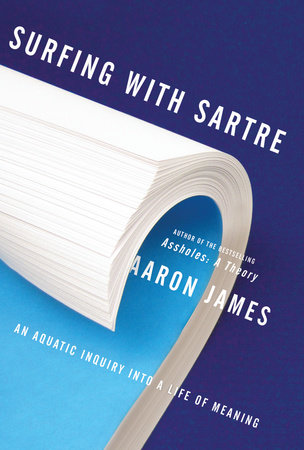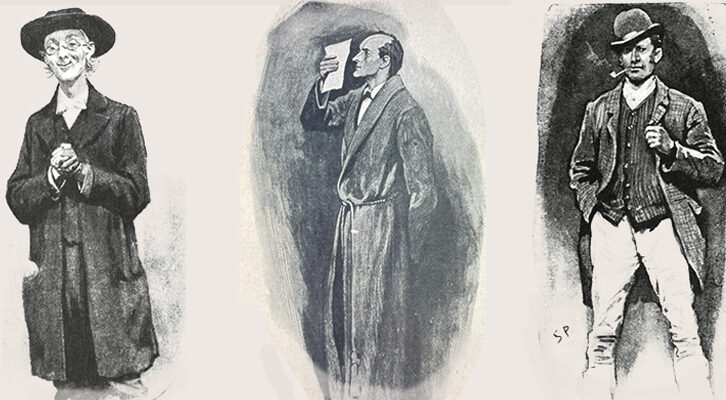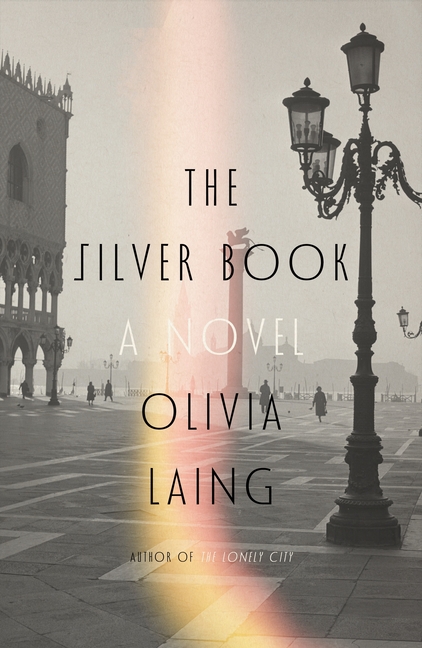
Working Less Can Save the World (and Other Philosophies of Surfing)
Hanging Ten With Kant and Sartre
Not so long ago, in the dark days before the 40-hour workweek, the average person worked constantly, without time to completely rest, let alone laze around, get creative, and maybe take up surfing. Fortunately, history brought something of a revolution. By the early 1940s, the labor movement had won limited workdays, weekends off, and periodic vacations for most workers. The postwar economy boomed. And many people hit the beach in this new leisure culture, finding new forms of meaning. Nowadays, in our more leisurely style of capitalism, the workaday surfer can be found at surf breaks the world over, stoked in gushing exuberance about the better waves of the day, feeling lighter about the stresses of work, acting as if the whole meaning of human existence can be found in the simple act of riding a wave.
And I mean, like, super stoked, at least in the peak moments. As in effusive, bursting forth in hoots and howls. As in feeling like things are easy. Fine. Golden. As though you can just relax and eat some nice tacos. As in you were worried about some things, but what were they again? Maybe the surfer gushes with profoundly vague slogans. “Only a surfer knows the feeling”; “Problems just wash off in the water”; “It’s all connected”; “You just have to tap into something bigger, you know what I’m saying?” And maybe the honest answer is “Actually, what are you saying?” But, you know, whatever, because who cares? Can’t the vague slogans just express the easy moment, without stating carefully defined truths? Surely complete thoughts aren’t always necessary, if only because the world can never be mastered in language, even in the most precisely chosen words. When you’re stoked about the waves on which everything totally came together, or when you got a serious, proper tube, and you rode inside the tube of the wave for what felt like ages, you don’t need to get control of anything. You’re stoked precisely because nothing else has to happen. Because nothing has to change. Because you can just be. Because right there at 3:15 pm on a Monday after a good surf session in Southern California, standing by the taco truck, under a fortunate sun, you are being.
Surfers aren’t ungrateful slackers—at least not in any greater proportion than the general population. Most surfers work. They show up to work even when the waves are cracking, moved by that pained sense of duty that comes in acting contrary to the strong inclination to go surfing. The “workaholic” shows up to work eagerly, with a zeal for money and self-promotion that requires no thought of duty. But then whose work has greater moral worth? The one who is solemnly moved by duty, or the one who does as he likes?
For Immanuel Kant, the Enlightenment philosopher and moral rigorist, the moral worth of an action springs from its motives, and the workaday surfer who shows up from duty—maybe solely from duty—would be especially praiseworthy for doing what he or she really isn’t inclined to do. Yet the high-minded, über-rationalist philosopher (one of the big philosophers of all time, alongside Plato and Aristotle of ancient Greece) probably isn’t the surfer’s philosopher. Although Kant was apparently quite the party animal in his youth, he traveled little beyond his hometown of Königsberg, Germany. It was said that you could set your watch by his daily walk, while he presumably worked in deep thought. The hardworking genius was skeptical about happiness and hyper-intellectual about morality and made much of strict conformity to law, and for those reasons alone a surfer might look elsewhere for help in articulating what is distinctively good about the surfer life.
Not that work these days is so terrible in itself. Most people can find some sort of meaning in a job taken to pay the bills. The time can fly while you get into a “flow state” while arguing about the new kitchen area policy, plowing through emails, or restocking a grocery store shelf. But most of us can’t constantly pay close attention, especially not when the job turns mundane. The mind wanders, often to what one is missing. And so the surfer can often be found awash in daydreams of glorious wave-riding moments, at the keyboard, cash register, or roller brush, going through the motions, not quite into work with his or her whole being. I once worked as a window cleaner for various restaurants. This paid mainly in flexibility, so that I could surf when the waves turned on. There was also joy in efficiently whipping the squeegee over the glass panes, without a drop left behind, and then, a moment later, opening the door for a customer with a pleasant greeting. The groove of fluid performance was intrinsically pleasing—not to mention time efficient, which put me on the road to surfing more speedily. Yet on the days when the wind would clock offshore, grooming the wave faces gently, with a solid six-foot ground swell running, when all I could think about was how insane the waves must be right this very moment, I could barely remember what I needed my small paycheck for. This wasn’t the dim sense that life could be better, eventually, if I just worked for it. The whole meaning of life was happening right now, today, only miles away from Denny’s restaurant, and there I was, at Denny’s restaurant, suffering the pangs of lost time, a forlorn lover alienated from his beloved, forcing a smile for the nice people who’d eaten too much of the all-day breakfast.
A few surfers should maybe get a job and make themselves more useful to others. Most of us, including most surfers, have the opposite problem: we work too much. Insofar as we do work too much, the surfer wisdom on the matter is that we should therefore work less. Meaning we should actually do that, actually work less. We can still work, of course, but more efficiently with less waste, for just enough money, in order to free up time for longer hours in the waves. It may sound odd as a serious proposition, and even many surfers haven’t quite pieced it all together, yet nowadays working less and surfing more can be an ethical chore, another way to make oneself useful to others.
Work as we now practice it emits gases (carbon dioxide, methane, and so on) that are steadily warming the planet. So in our strange new condition of ecological scarcity, as long as we do something less consumptive of ecological resources than working, such as surfing (without too much driving, air travel, and so forth), we contribute to society by making the climate change problem a little less terrible than it would otherwise be.
Is this perhaps something of a surfer’s rationalization for dodging work? The idea that working less is somehow a contribution to society—isn’t that rather ridiculous, the warm beach baloney of some hippie surfer “philosopher,” not to mention downright disrespectful of hard work, a cornerstone of civilization and personal virtue? Maybe so. But maybe not. The idea, as I’ll argue, has a clear logic. The philosophical challenge, if you’re down for fresh thinking, is to say where if anywhere the logic is mistaken.
Gone are the days of global ecological abundance, when a person could work for money like crazy and create greenhouse gases with no worries at all about the profound risks of ecological mayhem, with rising sea levels, droughts and floods, mass displacement, resource wars, and famine, among other dire results. Surfers aren’t the most altruistic lot, but even aside from the barest concern for other people you’d expect them to worry about this for their own reasons, because rising sea levels stand to swamp the world’s quality surf breaks. We should all hope and pray for an easy technological fix. Yet we can’t blithely assume new technologies will make the whole problem go away, without our having to otherwise adapt. And as it happens, one useful adaptation among other urgent measures is to carry forth the leisure revolution that gave us the 40-hour workweek. If we all worked, but a lot less, in, say, a 20-hour workweek, the climate crisis would be less terrible than it otherwise will be.
To this world-historical project, the surfer is an eager if unwitting contributor. For those not inclined to surf, there’s also of course gardening, spending time with the kids, reading a book, or whatever you happen to be into at the moment. As long as the activity emits less gas than you would have emitted had you been working in the labor market, doing more of it, instead of working, mirrors the surfer’s contribution to society.
The surfer is thus something of a new model of civic virtue. The real troublemaker is the workaholic, whose labor-intensive striving makes the problem of global warming worse than it has to be. I’m sure I speak for surfers everywhere in saying that it would be pretty uncool to scold people for an unfortunate inability to take it easy. Fortunately, not everyone has to do his or her full part in the new, limited workweek. Though for every workaholic who works above a new lower average, a surfer will need to be surfing, so as to “offset” the added emissions. This, as well as other weirdness, is what follows once we reckon with the new human condition of ecological scarcity.
The question is one of ethics: If climate science is even roughly correct, as I assume for the sake of argument, would it be morally okay for us to further enrich ourselves in work, without limitations, if many billions of living or future people are thereby put at grave risk of profound injury? Or are we obliged to adapt? Suppose our “sacrifice” in adapting is a matter of working less and spending more relaxing days with the kids and playing more sports. Would that be so tough? If we’d be happier, or even just no worse off, then continuing the leisure revolution would be not only an ethical imperative but something we could really get used to.
We would have to upend the Protestant work ethic, the quasi-religious ethic of hard work, discipline, and thrift, to which even the deeply secular remain firmly attached. Borne of the theology of Luther and Calvin, the ethic has become deeply ingrained in our lives, and it’s a real question whether we could ever let go of it. Simply questioning the ethic can make people angry. The idea of living without it can feel deeply uncomfortable, even disorienting. Who am I if not what I do? Sartre, that great 20th-century philosopher of being, thought we humans are not existentially suited to doing nothing. Being self-conscious and so free by nature, we are “condemned to choose” in perpetual self-creation. And on this point the quintessential Frenchman was fully in agreement with the old-guard capitalism that first caught on in Europe and then prospered in America. Being is just doing, which itself is a kind of work—the work of making ourselves into something, a someone, of a larger identity.
Sartre himself was a Marxist-socialist whose sympathies lay with the experiments in communism of his era. But the being-as-work idea was already well rooted across capitalist societies such as America, Canada, and Germany and remains with us today. One’s identity, the product of one’s self-creative work, is defined by what others will pay for one’s time and talent from their own hard-earned money. We largely let the market decide how much we contribute to society, who can fairly claim public benefits, and how we appear in the eyes of others, and so to ourselves. Yes, the forty-hour workweek does afford a measure of free time, but as a strategy for optimizing productivity. Leisure’s job is to “recharge the batteries” for work in our primary market occupations, the true source of our meaning. Time for being in leisure and lazing and relaxing and loafing and surfing is time for recreation rather than vocation.
The Protestant work ethic did nurture early capitalism, and without the rising wealth of nations the leisure revolution would never have begun. For that the surfer owes a historical debt of gratitude. That isn’t to say the ethic is part of our very being, instead of a way of getting rich so as to free up time for activities other than work. Now that advanced countries are rich, could the old ethic be out of date? Surfers aren’t exactly known for knowing things. Yet it could be—it isn’t impossible—that they’re on the right side of history.
What the surfer knows, in knowing how to ride a wave, bears on questions for the ages— about freedom, control, happiness, society, our relation to nature, the value of work, and the very meaning of life. The surfer’s answers to these questions suggest how we might adapt on a changing planet, given an unprecedented transformation in the human condition as our planet steadily warms. It’s a utopian thought at the moment, as were most of the humane changes in our working conditions at one time. But this is what’s great about philosophy: we can have such thoughts. We liberate ourselves from the daily machinations of politics, by looking beyond.
If I could chat with Jean-Paul Sartre about our 21st-century predicament in view of questions for the ages, I’d make my case that the surfer’s knowledge undermines central tenets of his philosophy. Sartre brought deep questions about the human condition before us. He also left us in a bleak existential predicament. In searching for an exit, the surfer shows a way into the sunlight, a hopeful view of history, and intellectual permission for a more exuberant conception of being.
__________________________________
From Surfing with Sartre by Aaron James, courtesy Doubleday.
Aaron James
Aaron James holds a PhD from Harvard and is professor and chair of philosophy at the University of California, Irvine. He is the author of Assholes: A Theory and Fairness in Practice: A Social Contract for a Global Economy, and he was awarded a Burkhardt Fellowship from the American Council of Learned Societies and spent the 2009–10 academic year at the Center for Advanced Study in the Behavioral Sciences at Stanford University. He was a visiting professor in the Department of Philosophy at New York University in 2013.




















